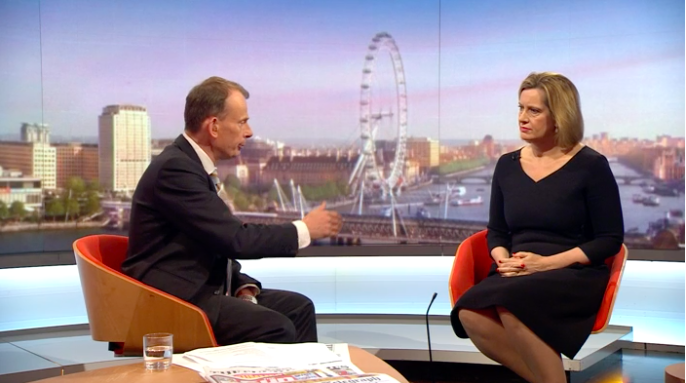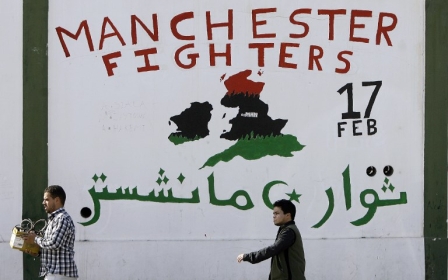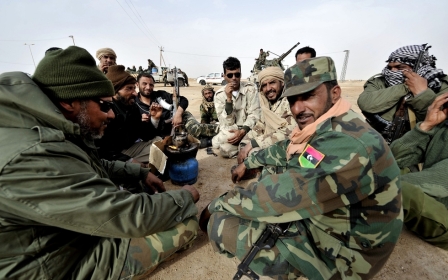Suspected terrorists banned from return to UK, says home secretary

Suspected terrorists have been put on temporary exclusion orders and banned from returning to Britain, while a former police chief called for "extremists" to be sent to internment camps on Sunday.
UK Home Secretary Amber Rudd refused to say how many times the exclusion orders had been used, but confirmed: "We have started to use them."
Temporary exclusion orders make it unlawful for the subject to return to the country without engaging with UK authorities.
Speaking to the BBC, Rudd admitted the authorities did not know how many Britons had returned from fighting with the Islamic State group or other groups inside Syria.
Salman Abedi, who blew himself up in the Manchester Arena attack on 22 May that killed 22 people, is reported to have travelled to Libya in 2011 during the school holidays to join his father, Ramadan, in the fight against Muammar Gaddafi.
It has also been suggested that Abedi "most likely" went to Syria, but Turkish officials reportedly said they had no record of him travelling to the country.
Asked to comment on reports that the security services missed opportunities to monitor Abedi, Rudd said: "I wouldn't rush to conclusions, as you seem to be, that they have missed."
Pressed on whether Abedi was "red-flagged" to the security services and if there could be a review of current procedures, Rudd said: "We won't shy away from looking at what we can do to keep people safe. We are in constant discussion with the security services and the police to make sure they have the right tools they need."
Rudd also said "potentially" other members of Abedi's group could still be free and "we can't be entirely sure that [the operation] is closed".
Her comments came after police issued CCTV stills of Abedi, wearing glasses and casual clothes, in a plea for information about his movements between 18 May and the attack four days later.
Police on Sunday said they had arrested a 25-year-old man in the Old Trafford area of Manchester, bringing to 12 the number of people being held in custody since the attack. Also on Sunday, an explosion was heard as police raided a house in the Moss Side area of the city.
Internment camps
Meanwhile, Tarique Ghaffur, a former assistant commissioner at Scotland Yard, called on Sunday for individuals suspected of being "extremists" to be rounded up and put into internment camps.
Writing in the Mail online, Ghaffur wrote: "We face an unprecedented terrorist threat – about 3,000 extremists are subjects of interest to MI5 and police, and about 500 plots are being monitored. The numbers are way too many for the security services and police to monitor."
Ghaffur added: "These centres would have oversight from vetted Muslim and other community leaders, who would ensure they stayed within the law."
Internment for suspected terrorists was suggested by a former military official a few days ago after the Manchester attacks took place.
However, former Scotland Yard Commissioner Lord Blair said it would be "counter-productive" as it would anger the Muslim community, whose co-operation he said, is needed to root out militants.
New MEE newsletter: Jerusalem Dispatch
Sign up to get the latest insights and analysis on Israel-Palestine, alongside Turkey Unpacked and other MEE newsletters
Middle East Eye delivers independent and unrivalled coverage and analysis of the Middle East, North Africa and beyond. To learn more about republishing this content and the associated fees, please fill out this form. More about MEE can be found here.




